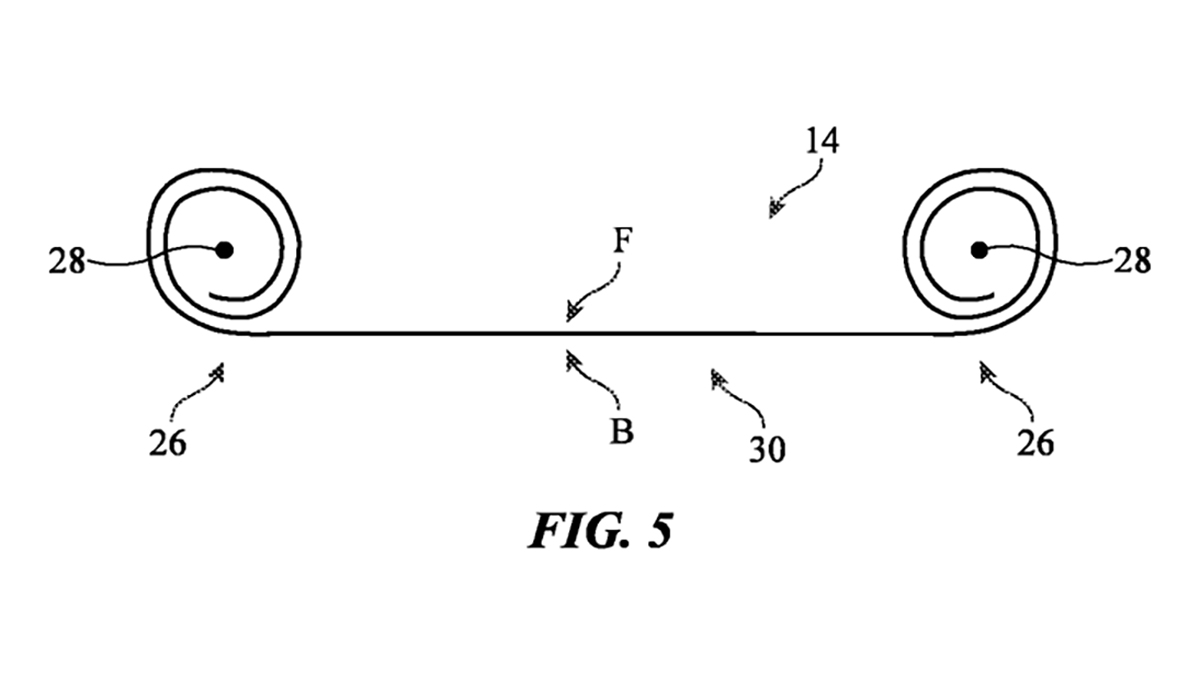Apple engineers are looking into the feasibility of an iPhone with a rollable screen as well as a foldable iPhone, according to a newly published patent. The display technology could also find uses on iPads and desktop screens as well, the patent suggests.
As found by Patently Apple (via Tom's Guide), the patent describes "electronic devices with rollable displays" that "may be moved between an unrolled state in which the display is planar and a rolled state in which a rollable portion of the display is rolled up for storage".
The diagrams accompanying the patent are pretty much as you would expect: a screen that looks like an electronic version of a piece of parchment that's rolled up at both ends. The display extends when needed, and then shrinks when needed.
It's an interesting take on the form factor we've seen with devices such as the Samsung Galaxy Z Fold 4: there again the idea is that you've got a tablet-sized screen at your disposal, but it can still fit in your pocket when folded. Rollable displays offer the same benefits, if device manufacturers are able to get the technology right.

Keep on rolling
This is by no means the first time Apple has registered a patent like this – earlier ones go all the way back to 2014 – but it does feel as though rollable screen technology is now much closer to actually appearing in a consumer device. While it's taken several years, foldable phones are now widely available, and rollables could be next.
And of course Apple isn't the only one investigating this type of display. Both LG and Samsung have demoed rollable screens for their products, though these screens are very much still at the prototype, tech expo demonstration stage.
At Mobile World Congress this year, Motorola showed off a rollable phone concept: the device's screen extended from 5 inches to 6.5 inches at the push of a button. It's a sign of what's to come, and it appears that Apple is planning to be involved.
Remember that as ever, patents only indicate what companies are exploring and testing – there's no guarantee that they'll ever turn into a finished product, as interesting as they are. Before any rollable iPhone we'll be getting the iPhone 15 in September.
Comments